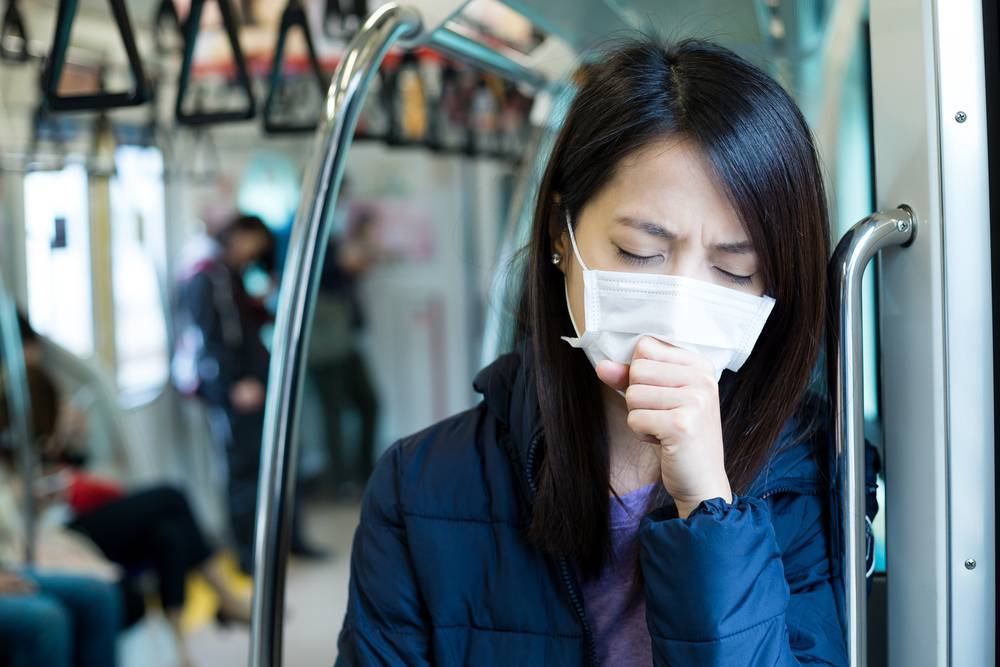Across Asia, the number of people living with the chronic respiratory illness bronchiectasis is growing. Research shows that the prevalence of bronchiectasis in Singapore alone was 147.1 per 100,000 in 2017 whilst another found a similar upward trajectory amongst Chinese adults with a prevalence of 174.45 (137.02, 211.88) per 100,000 during the same period.
Bronchiectasis is an irreversible and progressive health problem. Amidst the rising cases today, it is imperative to understand this disease and its long-term impact on the affected individuals and their families. If you or your loved ones have been diagnosed with bronchiectasis, however, fret not.
Advances are being made in diagnoses and treatments, with the ever-increasing adoption of next-generation technologies in the medical field such as artificial intelligence. It has also been proposed that immunonutrition may help address bronchiectasis-related infection and disease progression.
Ultimately, what’s important is to control and manage bronchiectasis, and one way to do this is by committing to a healthy lifestyle. Ahead are some steps that you can take to stay healthy whilst living with the illness.
Bronchiectasis: An Overview
Bronchiectasis, also known as non-cystic fibrosis bronchiectasis, is the result of the thickening of the inside surface of the branching airways called bronchial tubes. With this condition, these airways become scarred and inflamed by thick mucus that is produced by the tubes’ tiny glands.
The thin hair-like strands that help the mucus move easily are also destroyed, resulting in breathing difficulty. Acid reflux in the lungs may also damage the bronchial tubes, giving rise to bronchiectasis.
These are some of the telltale signs that you have the disease:
- Coughing up mucus with or without blood
- Chest pain or difficulty breathing
- Whistling sound while breathing
- Respiratory infections
- Weight loss
- Fever and chill
- Fatigue
- Slow growth among children
Living with Bronchiectasis
As with any other disease, managing the symptoms of bronchiectasis through healthy living is crucial. If you’re a smoker, for instance, saying goodbye to this habit for good can help prevent bronchiectasis from developing and, if you have been diagnosed, from progressing faster.
Changing your lifestyle for better health is never easy, but it is doable. Here are some tips to stay healthy to help manage your symptoms.
Stick to a healthy balanced diet
Eating well keeps your immune system strong to fight off infections. Consuming nutritious foods is also vital to your breathing and helps protect the health of your lungs. Try adding beet greens, pumpkin, apples and tomatoes, to name a few, to your regular meals to promote optimum lung function.
Drink Lots of Water
Water not only keeps your body hydrated, but it also prevents the mucus from becoming sticky and thick.
Engage in a Regular Workout Routine
Keeping your body moving not only makes you fit– which strengthens your ability to combat infections– but also contributes to the healthy functioning of your lungs. Swimming and walking are recommended exercises for people with bronchiectasis. Choose a workout that is appropriate to your condition.
Improve the Air Quality Inside Your Homes
If you have lung infections such as tuberculosis, pneumonia, and whooping cough, you are at risk of developing bronchiectasis. If you have been diagnosed with the disease, exposure to air pollutants will only exacerbate your condition. Improve indoor air quality by regularly changing your air-conditioning filters, using a dehumidifier, keeping your carpets clean, and many more.
Keep a Journal
When you have bronchiectasis, it is important that you keep tabs on the amount, colour and thickness of your sputum. Journaling about it and your other symptoms will help you and your doctor to keep track of your condition.
Build a Support Network
Living with bronchiectasis has its physical and psychological effects. Always remember that you are not alone in this journey. Journaling about your experiences may help as well as build a strong support network. You don’t have to go through life with bronchiectasis alone. Don’t hesitate to seek emotional support from your family, friends and even your doctor.
Conclusion
When you have the disease, staying healthy through lifestyle modifications is a step in the right direction and necessary to keep the symptoms at bay. It keeps your body at optimum level to better control your symptoms. Remember that having bronchiectasis should not hinder you from living your best life, but it requires commitment and consistency for you to have the upper hand in your health.
References
- https://openres.ersjournals.com/content/7/4/00334-2021
- https://respiratory-research.biomedcentral.com/articles/10.1186/s12931-022-02023-8
- https://pubs.rsna.org/doi/10.1148/radiol.221109
- https://www.frontiersin.org/articles/10.3389/fnut.2021.652410/full
- https://medicalchannelasia.com/bronchiectasis-all-you-need-to-know-about-it/
- https://www.blf.org.uk/sites/default/files/BK33_Bronchiectasis_v1_2017_PDFdownload.pdf
- https://www.healthline.com/nutrition/lung-cleansing-foods#5.-Turmeric
- https://www.blf.org.uk/support-for-you/bronchiectasis/what-can-i-do
- https://bronchiectasis.azurewebsites.net/help-advice/coping-and-support/

